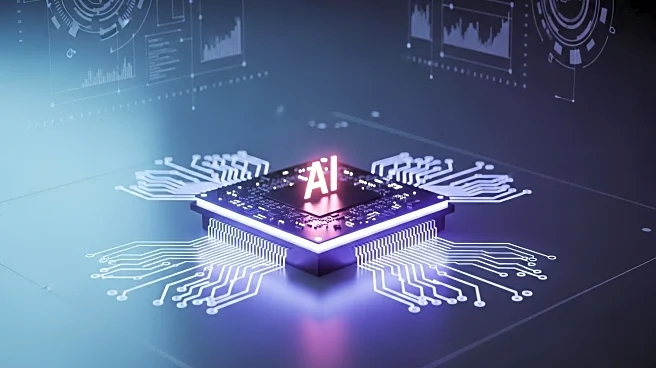What's Happening?
O2 Telefonica, in collaboration with Tech Mahindra and Nvidia, is developing a generative AI model aimed at improving telecom network operations. The project, known as the 'Large Telco Model,' seeks to enhance fault detection, technician coordination, and overall service quality within O2 Telefonica's German network. The model utilizes Nvidia AI Enterprise software and agent-based AI, specifically adapted for telecommunications operations. This initiative is part of O2 Telefonica's strategy to advance automation and data-driven processes, ultimately aiming for more autonomous network operations.
Why It's Important?
The development of the AI model by O2 Telefonica represents a significant step towards modernizing telecom operations through automation and artificial intelligence. This advancement is crucial for improving operational efficiency and customer service reliability, which are key competitive factors in the telecom industry. By leveraging AI, O2 Telefonica can potentially reduce operational costs and enhance service delivery, benefiting both the company and its customers. The collaboration with Tech Mahindra and Nvidia also highlights the growing importance of partnerships in driving technological innovation within the telecom sector.
What's Next?
O2 Telefonica plans to continue integrating AI into its network operations, with potential expansions in other markets. The company may also explore additional partnerships to further enhance its AI capabilities. As the telecom industry increasingly adopts AI-driven solutions, competitors may respond by accelerating their own technological advancements, leading to a more dynamic and competitive market. Regulatory bodies might also take interest in the implications of AI in telecom operations, potentially influencing future policies and standards.
Beyond the Headlines
The use of AI in telecom operations raises important ethical and legal considerations, particularly regarding data privacy and security. As AI models become more autonomous, ensuring transparency and accountability in decision-making processes will be crucial. Additionally, the shift towards AI-driven operations may impact employment within the industry, necessitating workforce adaptation and retraining.











